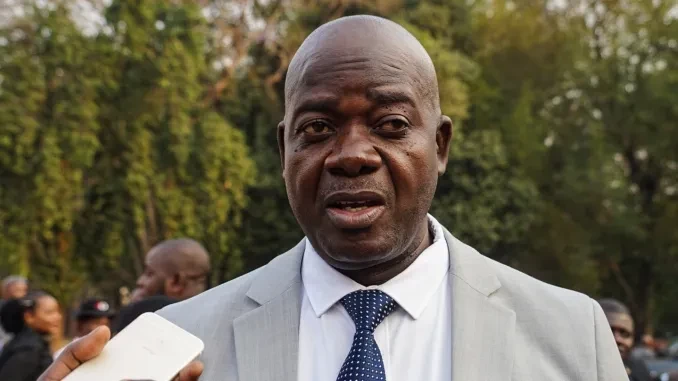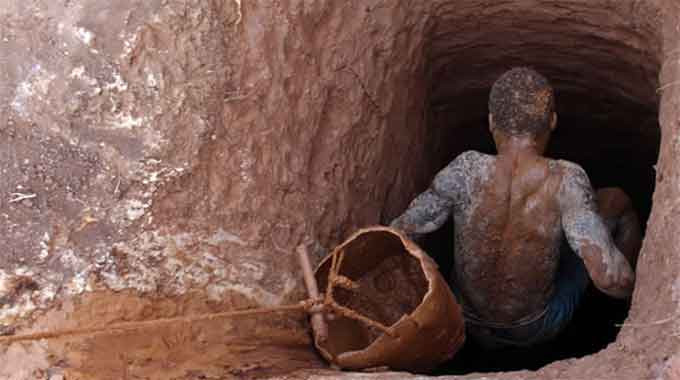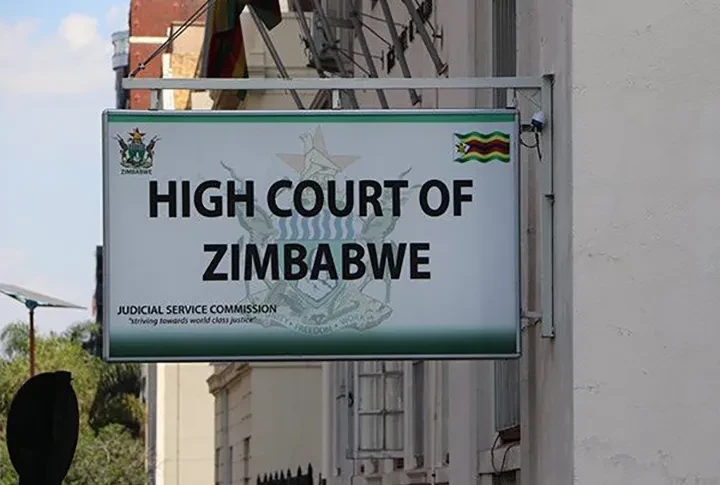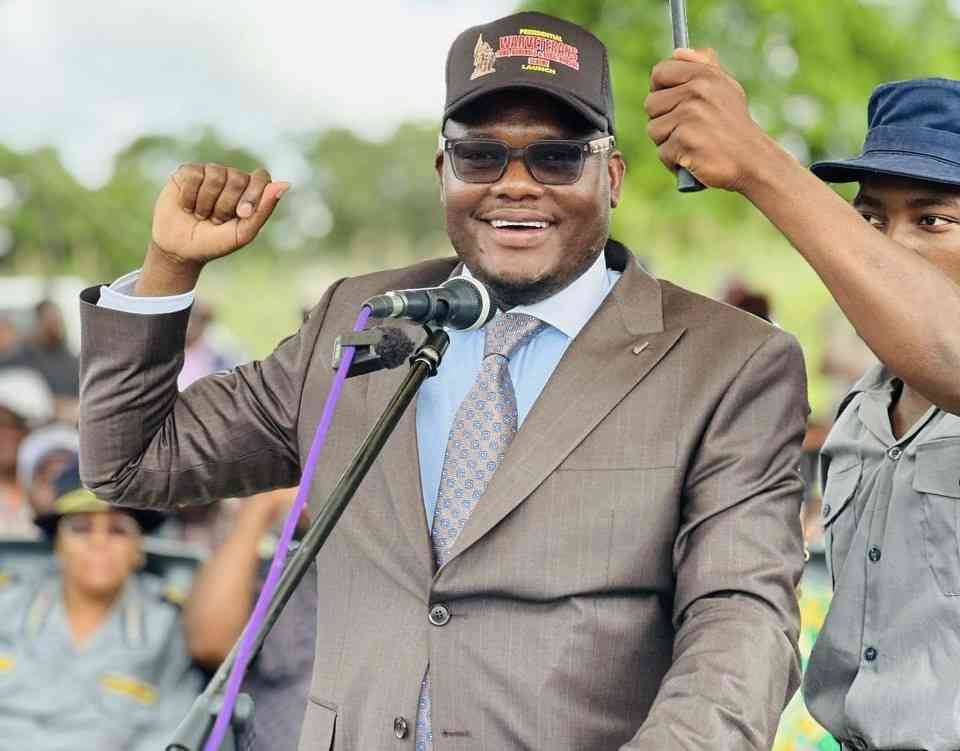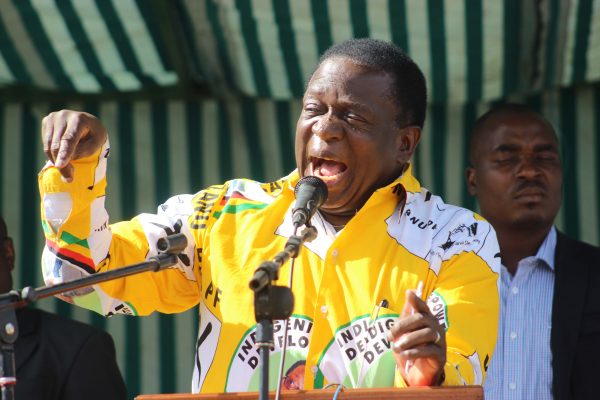
President Robert Mugabe not only got military support, but was actively aided by the British government to conceal to the world Gukurahundi atrocities soon after the country’s independence, a new report has revealed.
BY OBEY MANAYITI

British academic Hazel Cameron’s 20-page report published in the April edition of The International History Review and titled The Matabeleland Massacres: Britain’s wilful blindness, and exposes Margret Thatcher’s apparent policy to turn a blind eye to the atrocities.
Human rights activists estimate that at least 20 000 civilians were killed by the North Korean trained Fifth Brigade that was deployed in Matabeleland and Midlands ostensibly to tackle an insurgency, but turned out to be ethnic cleansing.
Mugabe has fought tooth and nail to conceal the truth about the atrocities, but declassified information from United States diplomatic cables from that era is now providing new information on Gukurahundi.
Cameron, a respected academic, made use of some of the cables to draw the conclusion that the United Kingdom looked the other way when the army unit committed the atrocities because the Zanu PF leader did not target Zimbabwe’s white population.
“The analysis of this study was undertaken through the prism of hitherto unavailable official British and US government communications pertaining to the Matabeleland massacres, obtained by Freedom of Information (FOI) requests to various British Government Ministries and Offices, and to the US Department of State,” she wrote in her report.
“This unique dataset provides minutes of meetings and other relevant communications between the British High Commission, Harare, the Prime Minister’s Office, the British Foreign and Commonwealth Office, the Cabinet Office and the Ministry of Defence, London, as well as the US Department of State and the US Embassy in Harare.”
- Chamisa under fire over US$120K donation
- Mavhunga puts DeMbare into Chibuku quarterfinals
- Pension funds bet on Cabora Bassa oilfields
- Councils defy govt fire tender directive
Keep Reading
Cameron added: “The mining of such rich data permits a unique insight into the role of the British government in Gukurahundi and establishes: what information was available to the British government about the persistent and relentless atrocities taking place against the Ndebele people of Matabeleland North during the early part of 1983; what the British diplomatic approach was in response to this knowledge; and what the British government’s rationale was for such policies. Importantly, this data is triangulated by analysis of the US declassified documents.”
Robin Byatt, the British high commissioner to Zimbabwe at the height of Gukuruhandi, is exposed in the report as the main architect of the attempted cover up of what remains one of the country’s darkest moments in history.
“The British high commissioner was proud that he enjoyed ‘a good relationship really’ with Mugabe during his posting as high commissioner in Harare,” Cameron says in her report.
“Byatt’s wife Jilly ‘was on very good terms with Sally Mugabe [Mugabe’s then-wife], who was a charming person’.
“Indeed Byatt notes that ‘Jilly’s relationship with her [Sally] could be useful in a practical way, trying to get round the Prime Minister’s office’.
The UK mission in Harare was aware of the Fifth Brigade deployment as early as January 14 1983, the report shows.
“It was on January 14 1983 that the FCO in London were made aware by a British diplomatic cable from Harare that, as a result of increased dissident activity in Matabeleland in the period leading up to and covering Christmas and the New Year, the government of Zimbabwe had ‘deployed some extra security forces to Matabeleland to little avail’,” Cameron wrote.
Major-General Colin Shortis, who was the commander of the British Military Advisory Training Team (BMATT) was identified as another leading figure in the cover -up.
BMATT assisted in the setting up of the Zimbabwe National Army through the intergration of former liberation war armies – Zipra and Zanla — with the Rhodesian forces. Shortis regurlary underplayed the gravity of the atrocities in line with Byatt’s policy in his briefs to officials in London.
According to the report, the British envoy regularly met some of the politicians and army generals that played a leading role in Gukurahundi such as Vice-President Emmerson Mnangagwa, Defence minister Sydney Sekeramayi, army commander General Constantino Chiwenga and Airforce commander Air Marshal Perence Shiri.
Shiri was the commander of the Fifth Brigade, which had its own command structure that was different from that of the ZNA.
Byatt was also at pains during that period to stop the international media from accessing the Gukurahundi story to a point that he even tried to prevent the BBC from getting the real narrative on the ground.
“I am sure that our best tactic is to continue to try to proffer sympathetic and constructive, rather than simply critical, advice if we wish to influence Zimbabwean decisions,” he is quoted saying in one of the cables as he advised his government against criticising Mugabe.
Byatt was also not cooperative when fellow Western diplomats tried to get a sense of what was happening in Midlands and Matabeleland, boycotting a meeting with the Canadian embassy on March 11, 1983, which had been organised to share notes on the unfolding atrocities.
Cameron concluded in her study that whenever Byatt informed his government of the increased violence and instability in Matabeleland and Midlands, he was only concerned about the white community.
Even Prince Charles was convinced that the Gukurahundi atrocities were exaggerated when he visited Zimbabwe in 1984. Britain continued to give Zimbabwe military aid during the atrocities.
“In spite of this knowledge, the British MOD, who had by this point already trained six Fifth Brigade personnel, continued to offer their assistance in the training of Fifth Brigade, including the forty three members of Fifth Brigade, who were at that point in time attending courses at the BMATT training base of Inkomo. A copy of this cable was also forwarded to the FCO by the British defence attaché,” Cameroon said.
Mugabe was also feted by the British during the atrocities and was even awarded an honorary degree by a university in the United Kingdom.
“It is in fact emblematic that so indifferent were the British to the state-sponsored atrocities of Gukurahundi that Robert Mugabe was awarded an honorary degree by the University of Edinburgh in 1984 for his services to education after much lobbying by Lord Carrington, the Secretary of State for Foreign and Commonwealth Affairs 1979–1982,”added the report.
“Incredibly, Colonel Perrence Shiri, the commander of the Fifth Brigade throughout the period of Gukurahundi, was invited to take a place at the Royal College of Defence Studies in London in 1986.”
Cameron also clearly illustrates that the deployment of the Fifth Brigade had little to do with dissidents menace, but was an attempt by Mugabe to entrench his power.
The militia targeted Zapu leader Joshua Nkomo’s supporters and party officials. Cameron’s report also lays bare the role played by Mnangagwa, Shiri, Sekeramayi and Chiwenga, among others, in the atrocities.
Meanwhile, the British embassy in Harare on Friday said it condemned the atrocities adding that the current government of Theresa May did not condone human rights violations.
“The UK condemns the brutal suppression in Matabeleland in the early 1980s,” the embassy said in reponse to questions from The Standard on Cameron’s report.
“Events during Gukurahundi were appalling crimes. The United Kingdom government supports the process of truth and reconciliation envisaged under the 2013 Constitution.
“This would allow the historical record to be established and victims of political and ethnic violence or their relatives to feel some justice has been served.
“The current British government policy is to stand up for human rights and the rule of law in Zimbabwe and we have a record of doing so strongly.”
Mugabe’s relationship with the UK has since soured and he often accuses the West of trying to recolonise Zimbabwe.
He claims the British sponsor local opposition parties to push for regime change.

